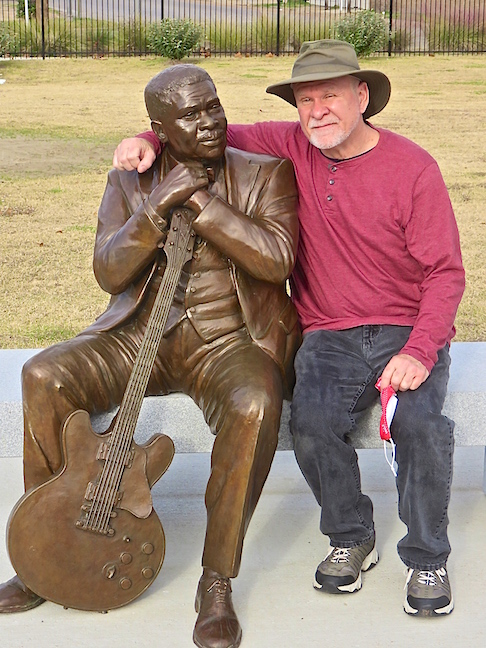Between the Mississippi and Yazoo rivers lies 7,000 square miles of alluvial floodplain dubbed “The Mississippi Delta,” where slave labor on vast plantations made cotton king. After the Civil War, black farmers were politically oppressed into sharecropping. Delta native, B.B. King said, “On the plantation we used to say that we worked from ‘can to can’t’ — from when you can see (sunup) to when you can’t (sundown).”
Karen requested Blues, Brews and Bar-B-Q for her birthday. On December 15th, we drove to Clarksdale, MS on the northern tip of the Delta to immerse ourselves in the land where the Blues were born from African field songs by musicians desperate to escape the grueling cotton patch.
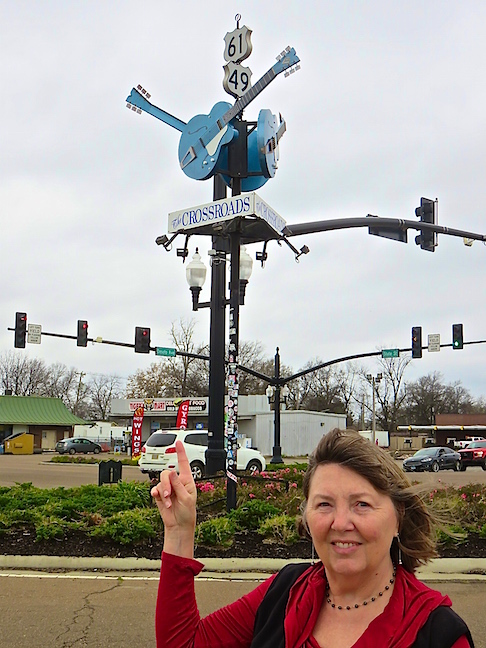
Highway 61 runs from Clarksdale to Vicksburg, MS through the heart of the Delta. Robert Johnson sold his soul to the Devil and became the most influential musician of all time at “The Crossroads” of Hwy 61 and Hwy 49 in Clarksdale.
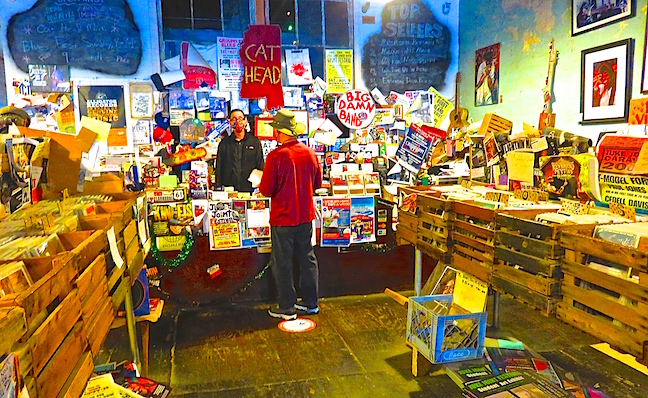
Roger Stolle is “Clarksdale’s Blues Ambassador” and owner of the Cat Head record and blues folk-art store. He’s the go-to guy for where to find live Blues music and historical sites. Roger told us, “You’re the only two tourists in town.”
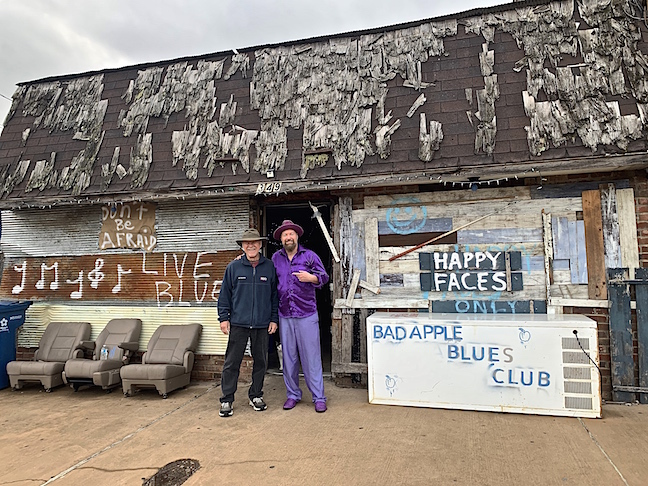
The sign on the front of the Bad Apple Blues Club read, “Don’t Be Afraid.” We were afraid when we first passed it coming into Clarksdale, but Roger assured us that we should not miss meeting Sean Apple and hearing him play the Blues.

Sean was a one-man show playing symbols with one foot and the base drum with the other, while delivering wicked Blues licks and lyrics. He took breaks to explain the history of different Blues styles and selling us $5 beer. Roger was right, Karen and I were the entire audience.
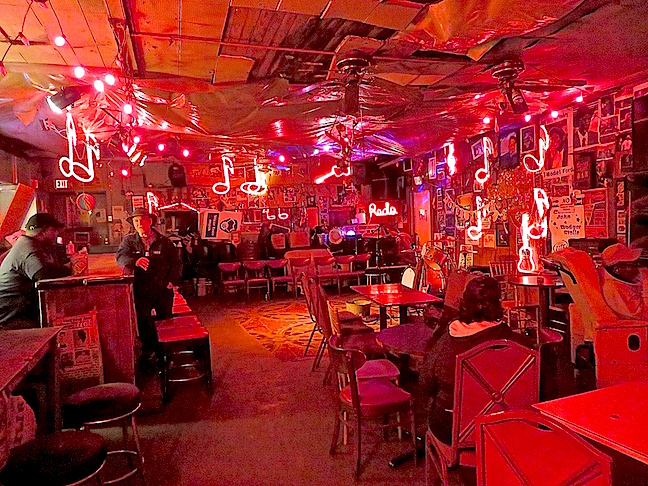
Reds Lounge is an authentic, 70-year-old juke joint. Charles met us at the dilapidated storefront. Karen asked, “Is Red’s open?” The portly man replied, “It is now.” Inside, we were escorted back in time. Charles served us $3 beer and Red stayed glued to a basketball game across the room as we waited for the Blues Man to arrive. Red’s building was “Levine’s Music Center” where Ike Turner and the Kings of Rhythm purchased their instruments to play rock ‘n roll’s first song.
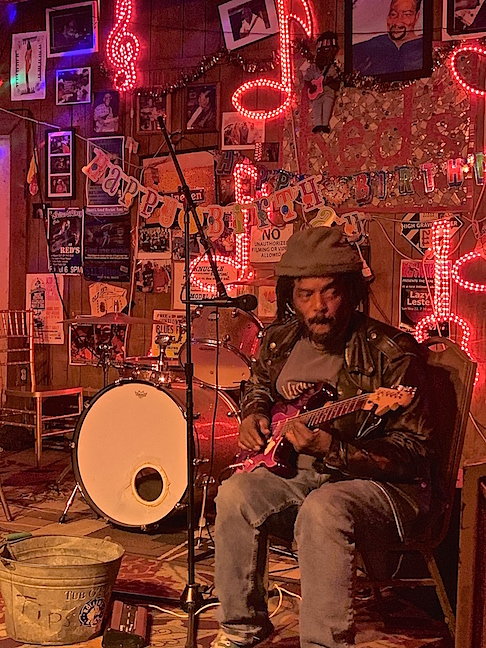
Lucious Spiller breezed into Red’s eating a sandwich from crumpled foil. He crushed the foil around the last few bites and put the food in his pocket when he saw me and Karen. “I’ll finish that on break.” Lucious played just for the two of us. The Blues aficionado chatted with us between songs. He sang and played incredible guitar the entire set with a toothpick in the corner of his mouth. I worried about him choking throughout our personal show.
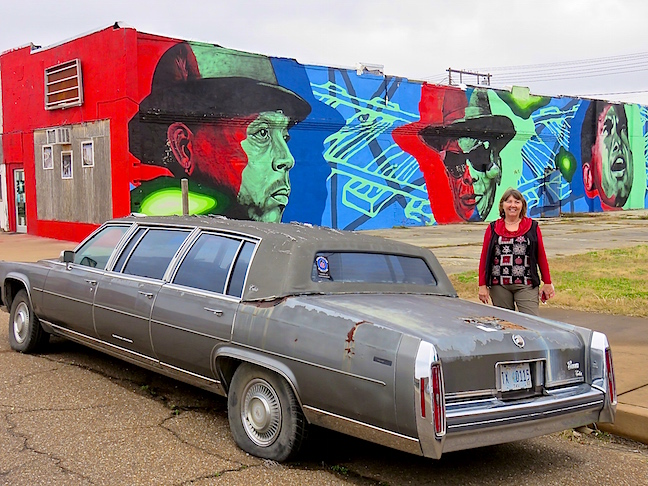
Before leaving the ‘Birthplace of the Blues’ the next morning, we visited more Blues sites. Blues legends looked down on us from walls in alleys and the sides of businesses everywhere we went.
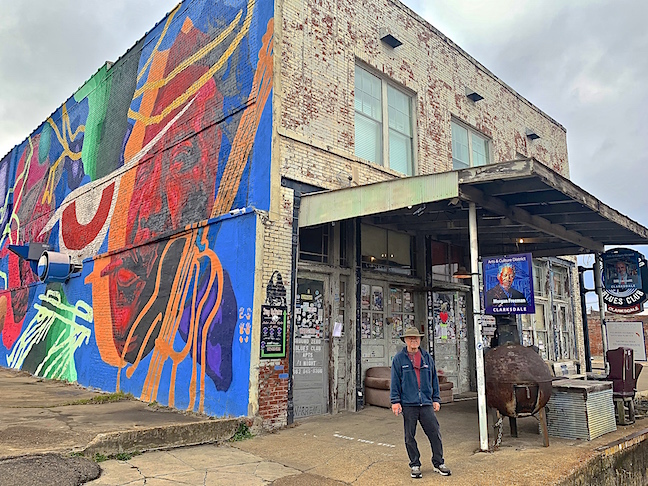
Morgan Freeman’s Ground Zero Blues Club was closed for inside filming the night before. It has become a showcase for Delta Blues musicians.
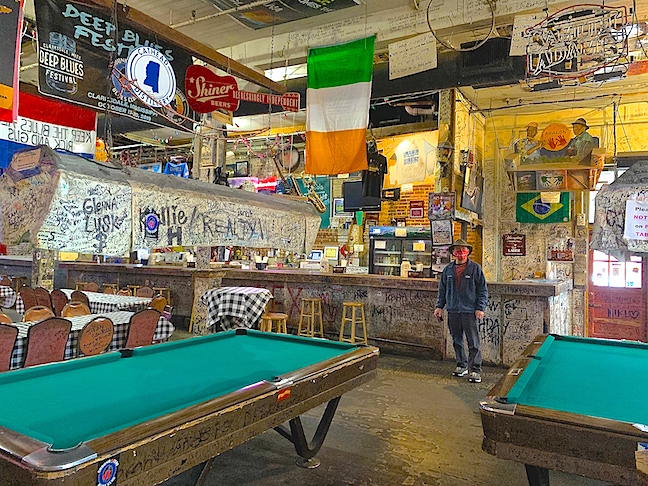
The front door was ajar for our morning arrival at Ground Zero. I told Karen, “I’m going in.” The employee getting ready for a later opening, left us unsupervised to look around and take all the pictures we wanted.
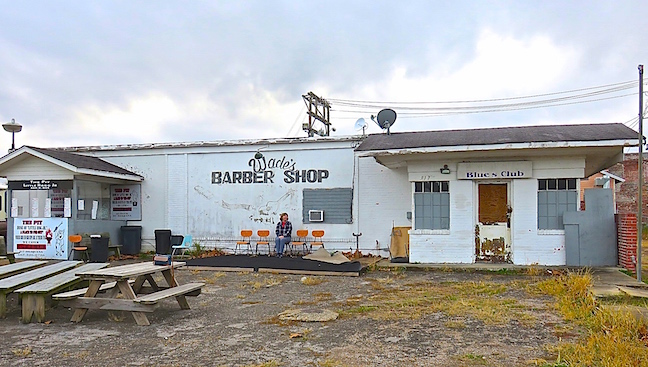
“Father of the Blues” W.C. Handy and his family once lived on the Wade’s site. Handy collected, published and promoted Delta Blues.
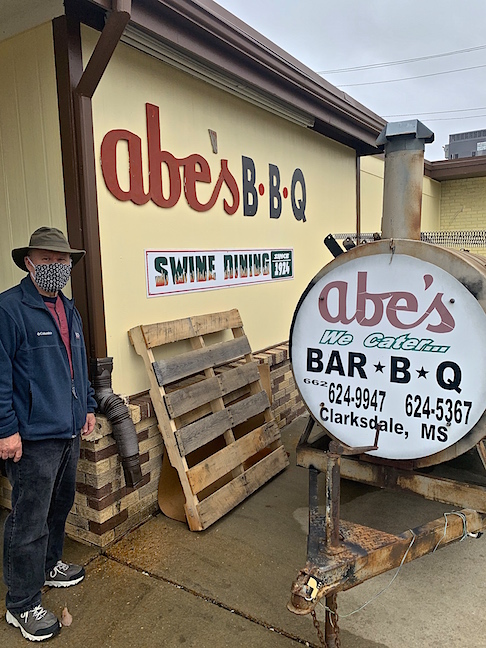
Bar-B-Q is huge in the Delta, but we were surprised to find that tamales also ruled there. We scored a triple pack of Abe’s tamales based on his grandfather’s 124-year-old recipe before heading south on Hwy 61, “The Main Street of The Delta.”
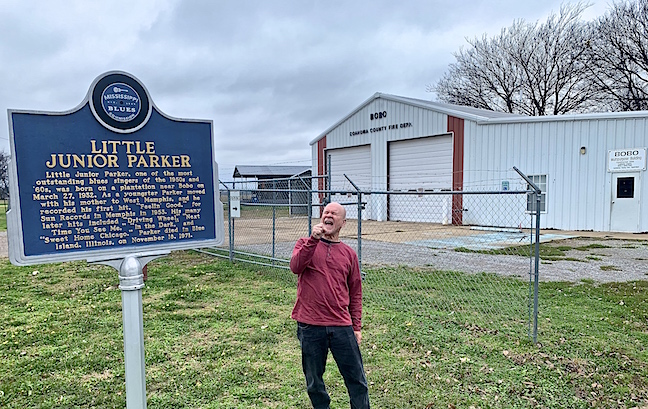
Blues Markers are scattered all over the Delta. Little Junior Parker was born in Bobo, MS and had a colossal hit with “Sweet Home Chicago.”
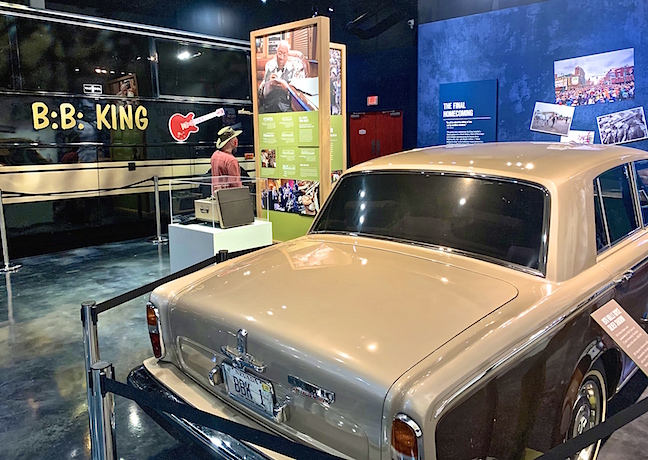
No trip to the Delta would be complete without paying homage to B.B. King at his museum in Indianola, MS. Riley “Blues Boy” King’s mother left his father when he was four-years-old and he was raised by his grandma who passed when he was 9. He supported himself by playing for dimes on street corners. King hitchhiked to Memphis and became famous. Riley averaged 200 gigs a year and once played 342 one-night-stands in 1956. He wore out 10 tour buses, putting 12-million miles on his favorite.
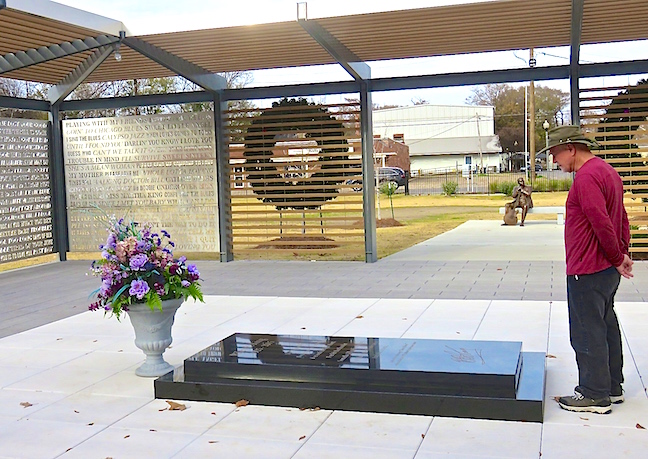
B.B. King played 40 free concerts for Indianola, which he considered his hometown. King is interred there and his marker reads, “Don’t know why I was made to wander. I’ve seen the lights, Lord, I’ve felt the thunder. Someday I’ll go home again and I know they’ll take me in.”
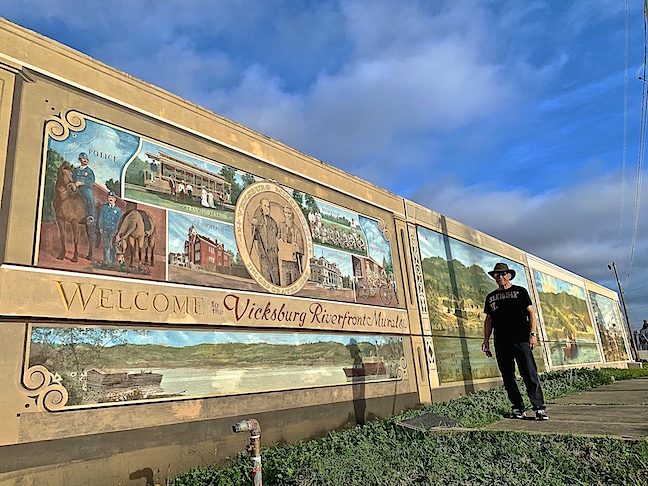
We finished our Blues tour in Vicksburg, MS. The Murals on the flood walls along the Mississippi River tell the city’s history. The first shots of the Civil War were fired at the A.O. Tyler steamer here. Jefferson Davis was informed of his presidency while pruning roses in Brierfield just south of town. Methodism was founded and Joseph Biedenharn first bottled Coca-Cola in Vicksburg.
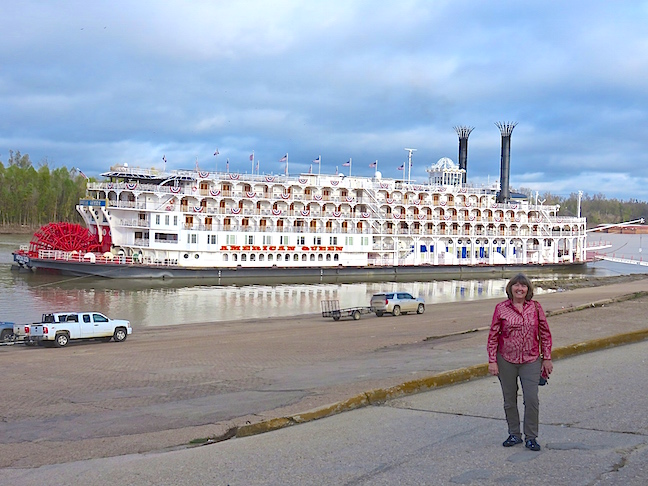
Willie Dixon wrote, “The Blues are the Roots, the Rest are the Fruits” about the mixture of African field songs, gospel, blues and country music he took to Chicago from the river bank in Vicksburg. The “Hoochie Coochie Man” creator was a major influence on the Chicago Blues sound.
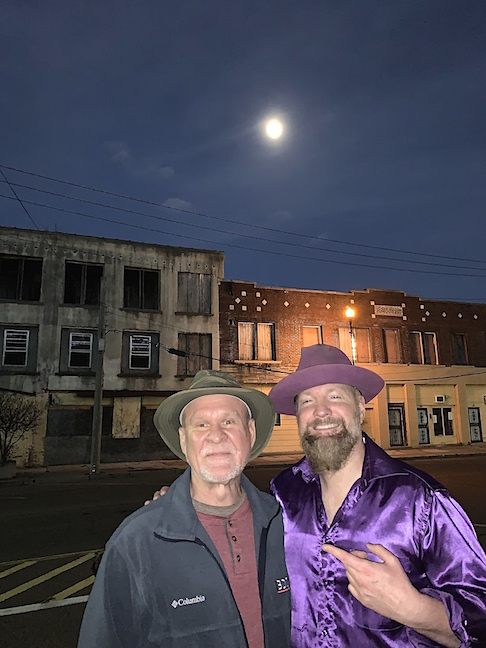
There would be no American Music without the Blues. We met a lot of great folks in the Delta that helped us remember that. “The blues is a
mighty long road. Or it could be a river, one that twists and turns and flows into a sea of limitless musical potential.”~ Billy Gibbons

